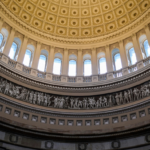Comparative Legal Studies: California vs. Other States

Comparative Legal Studies: California vs. Other States
Estimated reading time: 9 minutes
In the varied landscape of United States law, each state crafts its legal framework under the dual sovereignty granted by the federal system. This results in a mosaic of laws that, while unified under the Constitution, often diverge significantly in interpretation and application from one state to another. California, known for its progressive legislation and influential court decisions, frequently sets precedents that either lead or markedly differ from those in other states. See below for some of the key areas where California diverges from or aligns with other states.
Consumer Protection
California has established itself as a leader in the United States when it comes to the protection of consumer privacy. This commitment is evidenced by the enactment of robust legislation such as the California Consumer Privacy Act (CCPA) and the subsequent California Privacy Rights Act (CPRA).
The CCPA, effective since 2020, gives California residents new rights regarding the use of their personal data. It applies to any business, including any for-profit entity that collects consumers’ personal data, which does business in California, and satisfies at least one of several criteria relating to revenue, data processing volumes, or revenue from selling consumers’ personal data. Under the CCPA, consumers have the right to know about the personal data a business collects about them and how it is used and shared; the right to delete personal data collected from them (with some exceptions); the right to opt-out of the sale of their personal data; and the right to non-discrimination for exercising their CCPA rights.
The CPRA, passed in 2020 and set to fully come into effect in 2023, builds on the CCPA by introducing several significant changes and additional rights. It creates a new category of “sensitive personal information” that includes things like social security numbers, precise geolocation, race, ethnicity, religion, union membership, personal communications, genetic data, and more. The CPRA grants consumers the right to correct inaccurate personal information and to limit the use and disclosure of their sensitive personal information. It also expands the rights to include the restriction of usage of personal data for automated decision-making, providing consumers greater control over their personal information.
Perhaps most notably, the CPRA establishes the California Privacy Protection Agency (CPPA), the first agency in the U.S. dedicated solely to enforcing privacy rights. This agency is empowered to enforce both the CCPA and CPRA, signaling a significant step towards stringent enforcement of privacy laws.
While this legislation cemented California’s place as a pioneer in consumer privacy protection, other states like Colorado and Virginia have followed suit, each with unique provisions tailored to their residents’ needs. For instance, Colorado’s Privacy Act includes rights such as data portability and the ability to opt out, whereas Virginia’s Consumer Data Protection Act emphasizes the right to delete personal information.
Moreover, states like Florida and Texas have adopted privacy laws with specific focuses, such as regulating tech platforms and enhancing consumer control over personal data, albeit with varying degrees of comprehensiveness. As more states like Massachusetts and Pennsylvania propose similar bills, the U.S. continues to develop a patchwork of privacy regulations, posing potential compliance challenges for multi-state operations. This evolving landscape underlines the ongoing efforts to align with global data protection standards like the EU’s GDPR and China’s PIPL, further emphasizing the growing importance of data privacy in the digital age.

Environmental Regulation
California’s case law on environmental issues notably differs from that of other states due to its pioneering legislation, aggressive regulatory framework, and the proactive role of the judiciary in enforcing and interpreting these laws. California courts have consistently upheld stringent state standards that often exceed federal environmental regulations. For instance, California has its own Clean Air Act standards, which are stricter than those of the federal Environmental Protection Agency (EPA). This has led to significant case law that supports state regulations against challenges, sometimes even setting up confrontations with federal authorities.
California is also at the forefront of climate change legislation and litigation. The state’s Global Warming Solutions Act of 2006 (AB 32) was one of the first laws in the U.S. to mandate a comprehensive set of greenhouse gas emissions reductions. California courts have upheld the implementation of AB 32 against numerous legal challenges, thereby influencing other states to adopt similar measures and contributing to national discourse on climate policy.
California’s Comprehensive Environmental Quality Act (CEQA) requires state and local agencies to evaluate and disclose the environmental impacts of their actions, particularly concerning new development projects. California’s courts have a rich body of case law interpreting CEQA, often ruling in favor of environmental protection and community involvement. This body of law goes beyond what is found in many other states, where environmental impact assessments may be less rigorously enforced or integrated into state planning processes.
Water right are frequently litigated in California, and the state’s courts often address disputes involving water usage, pollution, and conservation. The California case law on water rights includes issues of allocation among agricultural, urban, and ecological uses, which is critical given the state’s frequent droughts. This is more intensive compared to states where water abundance reduces the frequency and intensity of legal disputes over water resources.
On the issue of endangered species and habitats, California has strong protections, enforced through active litigation. The state’s Endangered Species Act, enacted prior to the federal Endangered Species Act, provides protections that sometimes exceed those at the federal level. California courts have developed a substantial body of case law concerning species protection, habitat conservation plans, and the balancing of these environmental needs with developmental pressures.
Given the vast landscape of environmental protections in the state, California courts are often receptive to innovative legal theories in environmental litigation. This includes recognizing the public trust doctrine in contexts like climate change and groundwater protection, which are less commonly applied in other states. Such progressive legal interpretations empower environmental advocacy and regulatory bodies to pursue broader and more effective measures.

Technology and Intellectual Property Law
California’s approach to technology and intellectual property (IP) case law reflects the state’s status as a global tech hub. Home to Silicon Valley, California courts are frequently at the forefront of addressing emerging legal challenges in the technology sector.
IP and Fair Use Issues
California courts are well-versed in complex IP matters, including software patents, trade secrets, copyright, and trademark disputes due to the concentration of tech companies. California courts also often lead in copyright law interpretations, especially regarding fair use in digital contexts. In Lenz v. Universal Music Corp., for example, the Ninth Circuit affirmed a ruling by the Northern District of California addressing the use of copyrighted music in online videos and the obligation of copyright holders to consider fair use before issuing takedown notices.
Internet Law and E-commerce
California’s state courts frequently rule on cutting-edge internet law issues, such as data breaches, online consumer privacy, and the use of digital contracts. In Facebook, Inc. v. Superior Court, the California Supreme Court dealt with the extent of digital privacy rights under state law, reinforcing strong privacy protections for users.
By comparison, known for its “Rocket Docket” in the Eastern District, Virginia also handles a significant volume of internet and e-commerce disputes but generally lacks California’s depth in privacy and consumer protection jurisprudence.
Startups and Innovation
California provides a protective environment for startups with its favorable rulings on non-compete clauses and worker mobility, as seen in Edwards v. Arthur Andersen LLP, where non-compete agreements were held to be largely unenforceable. This fosters innovation and talent circulation within the tech sector. As a comparison, Massachusetts is traditionally more restrictive regarding non-compete agreements, although recent legislative changes, such as the Massachusetts Noncompetition Agreement Act, aim to reduce these limitations to foster a more dynamic tech ecosystem, similar to California.
Technology Standards and Patent Pools
California courts are pivotal in cases involving tech standards and the management of patent pools, critical for companies in Silicon Valley engaged in cooperative tech development. They handle complex issues regarding patent licensing and anti-competitive practices with a nuanced understanding of the technology involved. By contrast, as a major venue for corporate litigation due to its favorable corporate laws, Delaware courts deal extensively with patent litigation’s and corporate IP disputes but with a more traditional focus on corporate governance and less emphasis on the evolving tech landscape.
Stay up to date on the legal landscape with Continuing Education of the Bar (CEB)
CEB provides a range of online services that enable practitioners to stay up to date on important legal updates both in and outside of California, including:
CEB Practitioner: CEB’s Practitioner Tool is a comprehensive online resource designed for seamless legal research. It offers a vast array of case law, statutes, and practical guides across various legal fields. This tool streamlines research, enhances legal practice efficiency, and provides up-to-date information, making it invaluable for lawyers seeking quick and reliable legal insights. All Practitioner resources are written by California lawyers, for California lawyers.
OnLAW Pro: CEB’s all-in-one legal research solution with authoritative practice guides. OnLAW Pro is meticulously crafted by California lawyers for California lawyers, providing comprehensive insights and resources tailored to your specific needs. All practice guides integrate with CEB’s primary law research tool, empowering you to delve into California, Ninth Circuit Court of Appeals, and U.S. Supreme Court case law, alongside California statutes and the California Constitution. Moreover, as part of the Pro subscription, you gain access to DailyNews, ensuring you stay updated on any critical new cases or developments in your field. And don’t forget, OnLAW also includes TrueCite®, CEB’s powerful case law citator, enhancing your research efficiency and accuracy.
MCLE Solutions: CEB’s MCLE solutions, including CLE Passport and CEB’s CLE Compliance Package, provide a robust platform for California lawyers seeking to fulfill their CLE requirements. These solutions offer a diverse range of courses, covering various legal topics and practice areas. Designed for convenience and flexibility, the programs are available online, allowing attorneys to access high-quality, accredited educational content anytime, anywhere. CEB’s MCLE Solutions are an ideal blend of practicality and expertise, ensuring legal professionals stay informed, compliant, and at the forefront of their field.
Sample Templates and Form: With over 50 billion filings made, CEB’s Sample Templates & Forms offer a seamless solution for creating, printing, and storing these critical legal documents. Subscribers benefit from early access to the latest form updates, ensuring compliance and preventing filing rejections due to outdated forms. CEB’s tools offer unparalleled support in case law research, legal analysis, and staying updated with the latest judicial decisions. By choosing CEB, you gain access to a wealth of knowledge, enabling you to navigate complex legal landscapes with confidence and precision. Don’t let critical updates and strategic insights pass you by—join the esteemed community of attorneys who trust CEB to enhance their practice.
Read more related content
- California’s Proposed Antitrust Crackdown: SB 763 Penalties Could Jump from $1 Million to $100 MillionCalifornia’s Proposed Antitrust Crackdown: SB 763 Penalties Could Jump from $1 Million to $100 Million A $1 million penalty for California corporations found guilty of criminal antitrust charges could soon … Continued
- California Wildfire Legal Response: Executive Orders, CEQA Exemptions, and Rebuilding GuidelinesCalifornia Wildfire Legal Response: Executive Orders, CEQA Exemptions, and Rebuilding Guidelines The Los Angeles and Ventura County wildfires are, first and foremost, a human tragedy, displacing families, devastating communities and … Continued
- Navigating the Litigation Process in California: A Practitioner’s Handbook Litigation in California can be a complex and time-intensive process, requiring legal practitioners to have a thorough understanding of procedural rules, case law, and effective legal strategies. Whether representing plaintiffs … Continued



